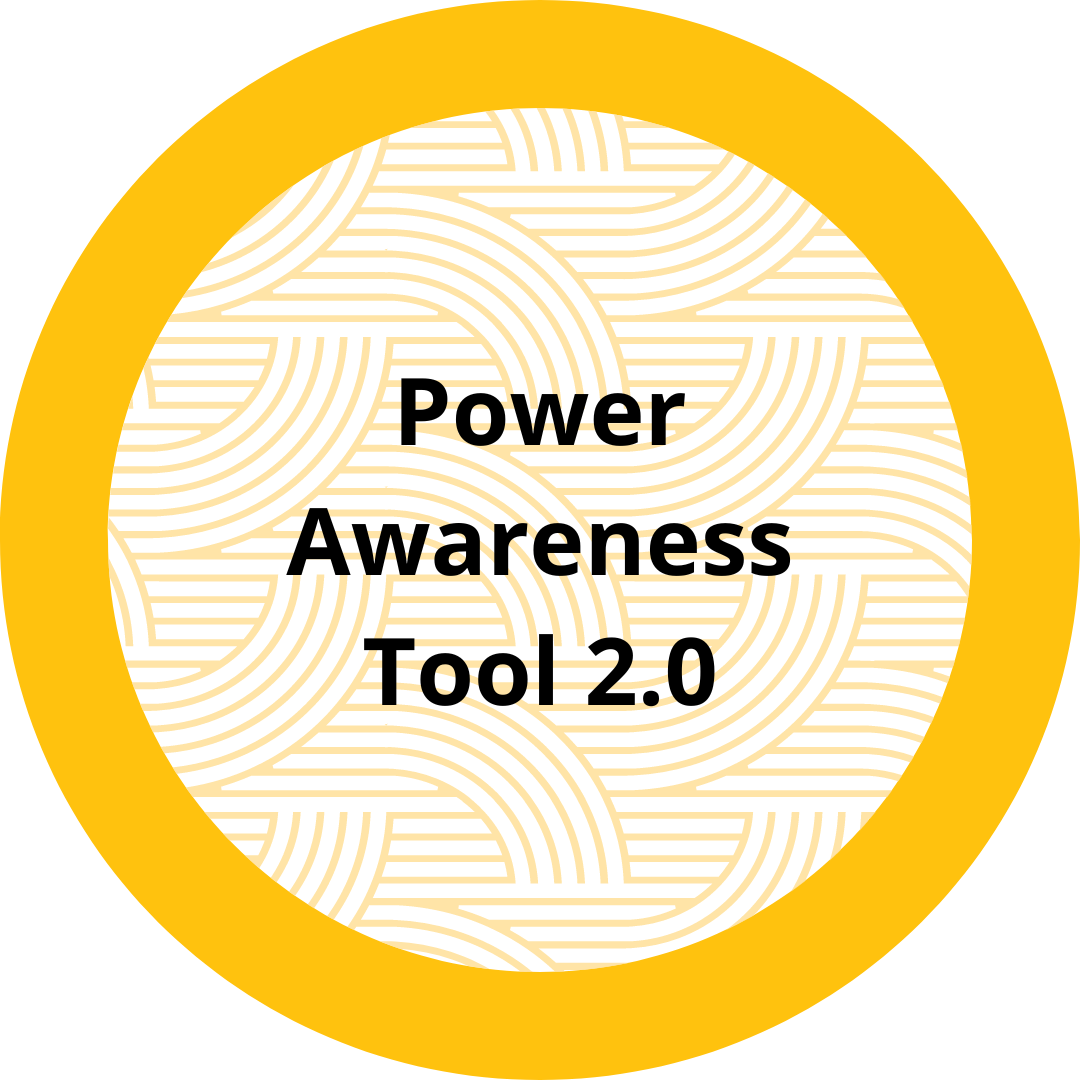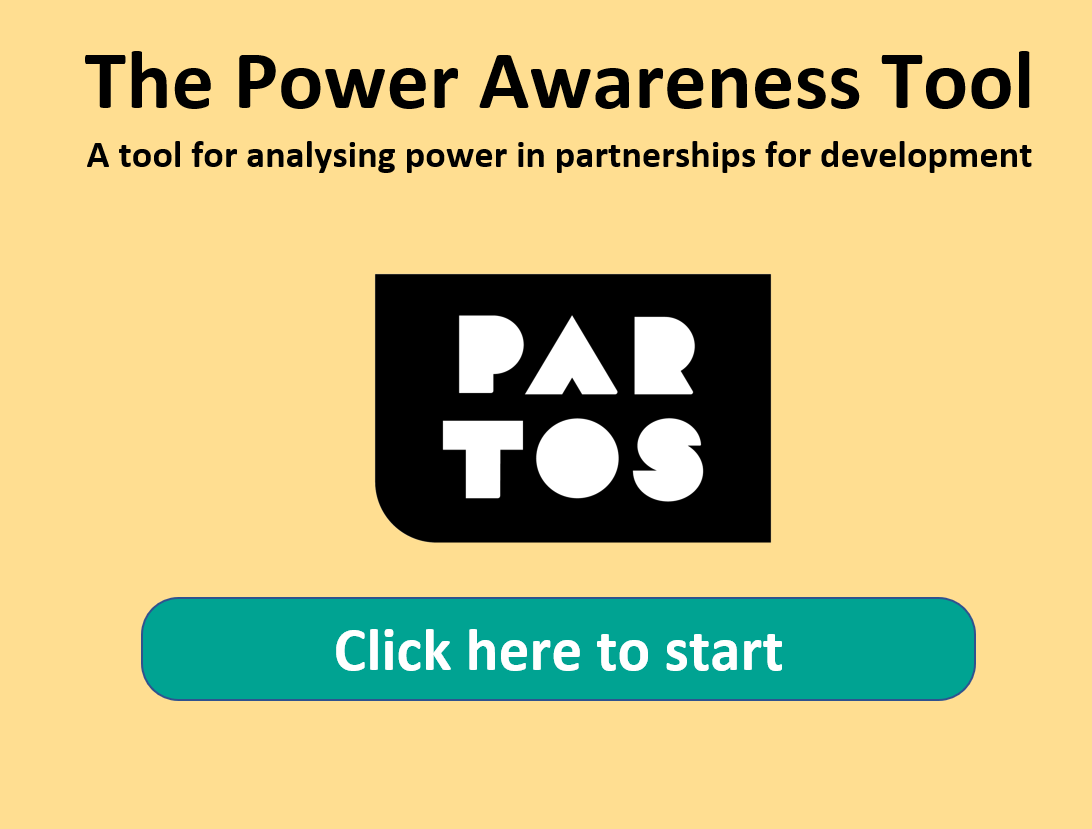
What is the Power Awareness Pool?
As the name suggests, the Power Awareness Tool (PAT) is designed to make power relations in partnerships visible. In any partnership, decision-making power plays a silent yet critical role. Who gets to decide the what and how, can truly make or break a collaboration. The PAT helps you shine a light on these power dynamics, empowering you to explore how power can be shifted so that everyone’s voice is heard and respected.
Go to the Power Awareness Tool
Why Should You Use the Power Awareness Tool?
The need for this tool is clear. In many partnerships for development, donors and international NGOs hold too much power, while local NGOs in the Global South often hold too little. Despite the widespread agreement that this should change, these power imbalances still persist. That’s where the Power Awareness Tool comes in.
The PAT offers a first step in making your decision-making in global partnerships more equitable. Here’s how:
- Identify key decision-making topics and who holds the power in your partnership.
- Avoid misunderstandings and frictions that can undermine your collaboration.
- Have open, honest discussions about decision-making processes.
- Agree on how to involve all partners in decision-making in a way that works for everyone.
- Generate a report of the current and desired decision-making outcomes of the PAT session.
The PAT isn’t here to tell you how to make decisions – that’s up to you and your partners. Instead, it encourages you to have open and clear conversations about power dynamics, paving the way for stronger, more balanced partnerships that work for everyone.
“Power balance and understanding of power relations in partnerships cannot be wished away. This tool has been vital in helping the partners in both Kenya and Ethiopia to reflect, understand and come up with concrete steps towards balancing power with a more clear understanding of their obligations, roles and responsibility. I wish we had in fact used this tool earlier in the partnership.”– Susan Githaiga (Civic Engagement Alliance/ICCO Coordinator Kenya)
How does it work?
First, Create your Power Awareness Tool (PAT) account. This account gives you access to the PAT Dashboard, where you can start a PAT session as a facilitator and join a session as a participant. As a facilitator, you create, guide and close a PAT session and invite participants in a partnership to join the session. As a participant, you can follow the PAT sessions for which you’ve been invited, and add comments that will be included in the report. We highly recommend you to work with an (external) facilitator to guide different partners through the reflections of power and decision-making. Once you’re in a PAT Session, you just follow the steps and trust the process:
- Convene with a partnership and start a PAT session.
- Identify important decision-making topics together.
- Reflect on the actual & desired level of decision-making.
- Agree on action for Change.
- Automatically generate a report on the PAT session.
Go to the Power Awareness Tool
What’s new?
This digitalised version is the online version of the Power Awareness Tool 2.0, launched in 2024. Due to its online Partos launched the first version, PAT 1.0, in February 2020. Since then, several Partos members and their partners have been using the PAT. In 2022, the tool was evaluated by over 70 end-users by Partos members and Southern partners, resulting in the 2.0 version. The new version mainly improved the user experience, making the tool simpler and more intuitive. Furthermore, the guiding document provides step-by-step guidelines on applying the tool and facilitation instructions.
“The Power Awareness Tool provided a concrete and timely opportunity to test and put into practice elements of Cordaid’s own internal policy guidance on Partnership and Alliances building.” – Izabella Toth (Cordaid)
Use the excel version of the Partos Power Awareness Tool 2.0 & guidelines


Who are the partners of the Power Awareness Tool?
The tool is co-developed and financed by Woord en Daad, Oxfam Novib, Cordaid, Wilde Ganzen, Liliane Fonds and of course Partos. Akvo is the developing agency.
